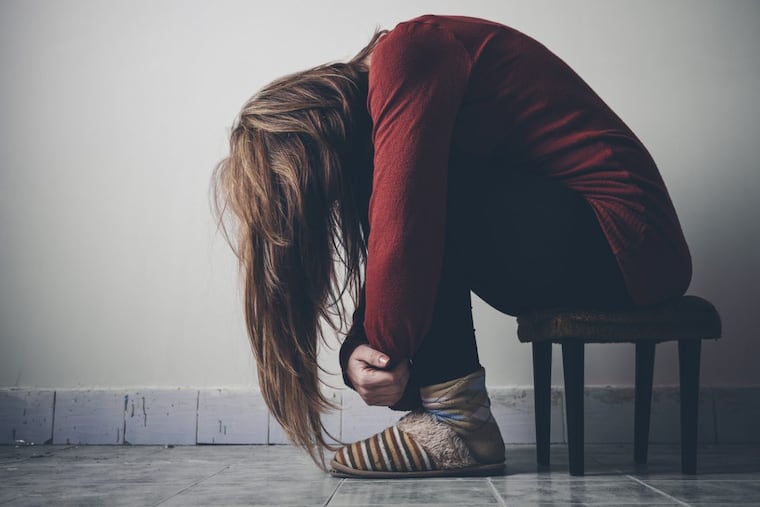Make suicide prevention a college requirement, experts urge
A suicide prevention effort that began with middle schoolers have now spread to college students.

Getting ready for college usually means focusing on academic preparation. But emotional preparation should be just as important, an expert in youth suicide told an audience of parents, educators and mental health experts gathered at the Children's Hospital of Philadelphia on Monday for a meeting of the area's Suicide Prevention Task Force.
Trouble students face in college often "is an extension from the high school experience," said Matthew Wintersteen, an associate professor of psychiatry with Thomas Jefferson University and a leader of the Pennsylvania Youth Suicide Prevention Initiative and the Pennsylvania Higher Education Suicide Prevention Coalition.
But too often, not enough is done to help young adults deal with the emotional challenges they face when they get to college, and don't have their parents around as they did when they were younger. Even beyond routine adjustment issues, young people with more serious problems such as depression and schizophrenia are now more able to go to college, thanks to advances in medication and treatment.
Legally, we consider people to be adults at 21, or even 18. But developmentally they may still be more like adolescents. The World Health Organization defines youth as age 15 through 24, noted Wintersteen.
According to American College Health Association data that Wintersteen shared, more than 63 percent of college students report serious episodes of sadness, with more than 34 percent saying they have felt so depressed that they've found it hard to function. Close to 86 percent said they felt overwhelmed by all they had to do, and about 59 felt very lonely at times. Nearly 57 percent experience overwhelming anxiety.
Most disturbingly, over a one-year period, almost 9 percent had seriously considered suicide, 6 percent engaged in self-harming behavior, and 1.4 percent of college students attempted to take their lives, he said.
Suicide, he told the group, is the second leading cause death among college students, after accidents.
Meanwhile, colleges and parents may confront legal barriers to helping students, he said. Parents are sometimes frustrated by the limited information they are able to obtain about their children who are legally adults. College mental health counselors may not be able to share certain information. Besides, college students, he noted, are often very hesitant to seek help or tell their parents about their problems.
Conversely, many students today have so-called helicopter parents who handled a lot of tasks for them and helped them — sometimes too much — make decisions large and small, colleges have found.
"They are literally calling the parents about, 'What do I wear?' " Wintersteen said.
Parents, he said, need to learn to strike a balance, including letting their children make their own mistakes at times so they learn to develop autonomy and coping skills.
College counselors, meanwhile, need more training in suicide prevention, he said.
The state youth suicide prevention organization offers expert assistance to its member colleges, as well as $750 mini-grants for prevention efforts, and has a wellness project for medical students, who face especially high stress.
The town hall meetings got started in Philadelphia by mental health professionals about 18 months ago after a series of middle school student suicides, said Tami Benton, psychiatrist-in-charge for CHOP and a leader of Monday's event. Their mission has expanded to include older students as well.
After two University of Pennsylvania undergraduates died in the span of two weeks in early 2014, the administration created a mental-health task force made up of administrators and professionals. The task force released an eight-page report in February 2015 emphasizing a culture change on campus. Another suicide of a Penn undergraduate last year prompted the young woman's friends to hold a public demonstration to demand further action to help troubled, stressed students.